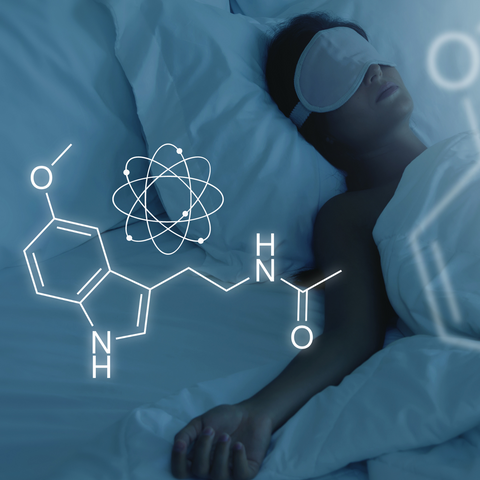Sleep is a fundamental aspect of your well-being, intricately linked to numerous facets of your physical and mental health. Although it might seem like a passive state, sleep is actually a complex process that involves several stages, each with its own distinct characteristics and purposes. When you drift off to sleep each night, your brain and body embark on a vital maintenance routine that supports everything from cognitive function to cardiovascular health.
The journey through the night involves cycling through various sleep stages, typically starting with light sleep and moving into deep sleep before reaching the rapid eye movement (REM) stage. Deep sleep is crucial for physical restoration, while REM sleep, which sees an increase as the night progresses, plays a key role in memory consolidation and mood regulation. Achieving a balance of these stages is essential for waking up feeling refreshed.
Understanding the science behind a good night's sleep can empower you to optimize your rest and, by extension, enhance your daily life. Your body's internal clock, or circadian rhythm, governs your sleep-wake cycle and is influenced by factors such as light exposure and lifestyle habits. By aligning your routines with your natural sleep rhythm, you create the conditions for quality sleep, which is as critical to your health as a balanced diet and regular exercise.
Understanding Sleep
In exploring the science of a good night's sleep, it's essential to grasp how sleep patterns and stages contribute to your overall health, and the consequences of sleep deprivation.
Stages and Patterns of Sleep
Your sleep is composed of multiple cycles, each spanning approximately 90 minutes. These cycles include both REM (Rapid Eye Movement) and non-REM sleep, which are further divided into stages.
- Non-REM Stage 1: A brief transition period of light sleep where you can be easily awakened.
- Non-REM Stage 2: Your heart rate slows, and body temperature drops, preparing you for deep sleep.
- Non-REM Stage 3: This is deep, restorative sleep, essential for feeling refreshed.
- REM Sleep: Typically begins 90 minutes after falling asleep, where most dreaming occurs, and memory consolidation takes place.
Understanding your sleep patterns, influenced by your circadian rhythm and sleep-wake homeostasis, helps maintain a consistent sleep schedule, enhancing the quality of your sleep.
Importance of Sleep on Health
Adequate sleep is a pillar of your health. During sleep, your body engages in repair and growth processes, maintains a healthy balance of hormones, and supports the immune system. Prolonged sleep deficiency is linked to heart disease, diabetes, obesity, and other health issues. Sleep also significantly impacts your mood; consistent rest can alleviate stress, anxiety, and depression symptoms.
Physiological Effects of Sleep Deprivation
The absence of sufficient sleep can initiate a cascade of detrimental effects on your body, such as:
- Metabolism: A single night of poor sleep can lead to changes mimicking a prediabetic state.
- Immunity: Lack of sleep weakens your immune response, increasing vulnerability to infections.
- Cognitive Performance: Sleep deprivation can cause memory issues, impaired judgment, and an increase in the risk of accidents.
- Mental Health: Chronic sleep deprivation is associated with a higher incidence of various mental health problems, including depression and potentially dementia.
- Heart Health: Elevated risks of high blood pressure and stroke have been reported in those with sleep disorders.
Maintaining regular sleep patterns helps to avoid these risks and supports your body's essential functions, from hunger regulation to daytime alertness.
Improving Sleep Quality
To achieve a good night’s rest, it's essential to focus on enhancing your sleep quality. This includes establishing a conducive sleep environment, adopting beneficial diet and lifestyle habits, and employing relaxation techniques before going to bed.
Sleep Hygiene and Environment
Your bedroom should be a sanctuary optimized for sleep. Maintain a cool temperature between 60 and 67 degrees Fahrenheit, as this range supports the natural drop in body temperature that occurs during sleep. Ensure that your room is as dark as possible; consider using blackout curtains or eye masks to block out light.
- Mattress and Pillows: Choose a comfortable mattress and pillows that support a neutral sleeping position.
- Sheets and Bedding: Opt for breathable materials to maintain a comfortable temperature throughout the night.
Limit exposure to screens from devices such as smartphones and TVs at least an hour before bedtime as the blue light emitted can disrupt your circadian rhythm.
Diet and Lifestyle Factors
What you consume and how you live play pivotal roles in sleep quality.
- Avoid stimulants such as caffeine and nicotine close to bedtime.
- Moderate your alcohol intake as it can affect the quality of REM sleep.
- Exercise regularly, but not right before going to bed, as it raises your body temperature.
Maintaining a consistent sleep schedule reinforces your body's sleep-wake cycle, making it easier to fall and stay asleep.
Techniques and Remedies
Engage in relaxation techniques to prepare your body and mind for sleep:
- Meditation and Relaxation Exercises: Practices like deep breathing can signal your body that it’s time to wind down.
- Bedtime Routine: Establish a pre-sleep ritual such as reading or listening to soothing music.
Consider over-the-counter sleep aids cautiously and consult a healthcare provider before starting any medication for sleep.
Remember, these practices are interconnected and work best when combined to form a comprehensive approach to improving sleep quality.



